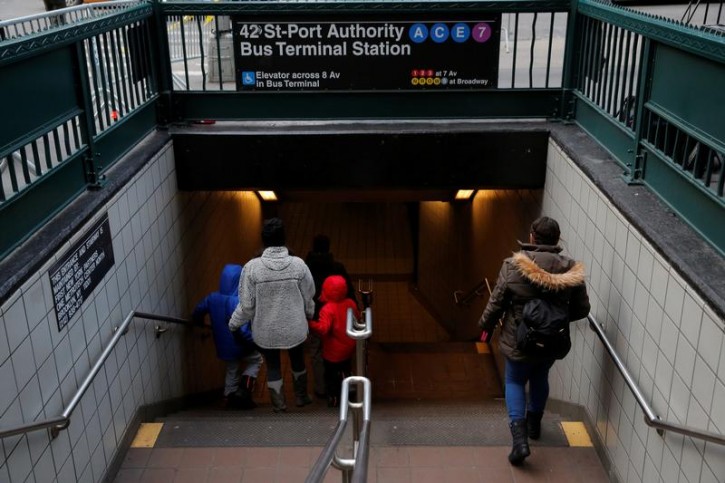
New York – The U.S. government on Tuesday sued the agencies that run New York City’s subway, claiming they failed to make a Bronx station accessible to disabled people despite an expensive renovation.
By intervening in a 2016 lawsuit brought by disability rights advocates against the Metropolitan Transit Authority (MTA) and New York City Transit Authority (NYCTA), the U.S. Department of Justice added firepower to a case that could help spur broader changes to the aging subway.
The agencies were accused of violating the Americans with Disabilities Act by spending more than $27 million in 2013 and 2014 to renovate the Middletown Road station on the No. 6 line in the Pelham Bay neighborhood, without installing an elevator so disabled people could use it.
“There is no justification for public entities to ignore the requirements of the ADA 28 years after its passage,” U.S. Attorney Geoffrey Berman said. “The subway system is a vital part of New York City’s transportation system, and when a subway station undergoes a complete renovation, MTA and NYCTA must comply with its obligations to make such stations accessible to the maximum extent feasible.”
The government said transit officials decided against an elevator because they thought it was infeasible and would cost more than 20 percent of the overall bill.
But the Federal Transit Administration, part of the U.S. Department of Transportation, disagreed on the feasibility issue and rejected the officials’ request to be reimbursed for project costs.
Tuesday’s lawsuit seeks the installation of elevators.
In a statement, the MTA and NYC Transit said they will defend against the lawsuit, but are “committed to adding and maintaining accessibility for the century-old subway.”
Their 2015-2019 capital plan includes about $1.4 billion for ADA accessibility and elevator and escalator replacement in the system.
Andy Byford, the new NYC Transit president, has also said that accessibility is a top priority.
The government joined a lawsuit filed on behalf of the nonprofit Bronx Independent Living Services by Disability Rights Advocates, which last April filed two other lawsuits targeting alleged systemic subway access problems.
It has said fewer than one-quarter of New York’s stations are wheelchair-accessible, compared with at least two-thirds of stations in Boston, Chicago, San Francisco and Washington, D.C.
Michelle Caiola, litigation director of Disability Rights Advocates, said in an interview that Tuesday’s lawsuit was a “small but mighty case” to help address “a very large problem.”
New York’s subway in 2016 carried about 5.65 million riders per weekday. It has been plagued by growing delays attributed to such factors as inadequate maintenance, a crumbling infrastructure and outdated signaling, even as ridership has grown.
The case is U.S. v. Metropolitan Transit Authority et al, U.S. District Court, Southern District of New York, No. 16-05023.
As reported by Vos Iz Neias
